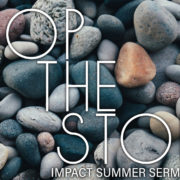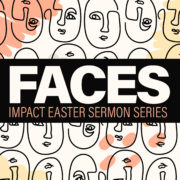#144 Ubuntu
Pastor Cheryl Thomas
Sunday, June 22
Ubuntu – Wisdom is Building a House: The Importance of Relationships in that Community
“Ubuntu is a philosophy that considers the success of the group above that of the individual.”
Stephen Lundin- Ubuntu!
The word ‘Ubuntu‘ originates from one of the Bantu dialects of Africa, and is pronounced as uu-Boon-too.
It is a traditional African philosophy that offers us an understanding of ourselves in relation with the world. According to Ubuntu, there exists a common bond between us all and it is through this bond, through our interaction with our fellow human beings, that we discover our own human qualities. Ubuntu- “I am what I am because of who we all are”
One of my favorite Proverbs is 9:1-6
1 Wisdom has built her house; she has hewn out its seven pillars.
2 She has prepared her meat and mixed her wine; she has also set her table.
3 She has sent out her maids, and she calls from the highest point of the city.
4 “Let all who are simple come in here!” she says to those who lack judgment.
5 “Come, eat my food and drink the wine I have mixed.
6 Leave your simple ways and you will live; walk in the way of understanding.
It is never clearly stated in the proverb what wisdom is but if we let the word interpret itself we find in Proverbs 8 that wisdom is Christ.
We are not clear on the what the seven pillars refer… but James offers us some idea… in James 3:17: “But the wisdom that is from above is first pure, then peaceable, gentle, and easy to be entreated, full of mercy and good fruits, without partiality and without hypocrisy.”
The pillars have also been referred as the 7 fold spirit of God mentioned in Isaiah…
Nevertheless, Wisdom, it seems, does five things: She builds, she prepares, she calls, she hosts, and she offers insight.
-the desire of wisdom is the house, one of provision and one that has children
It is safe to conclude that God is building a family house…
– A house with a support system- pillars- pastors, evangelist, prophets, apostles, teachers, deacon, leaders
– A house that can sustain its inhabitants, its family- prepared meat, wine, and table
– A house that welcomes those without wisdom – calls to the simple {easily seduced, sill}
– A house where exchange your simple ways- for the way of wisdom
– A house that will set you on course—teach you to walk in the way (well traveled road) of understanding
Ever since creation, everything that lives exists in an elaborate network of relationships & community it is one of God’s principle purposes for human beings. That is why we all feel the need for companionship, love, and belonging. God wants a family- a community.
Even psychologist Abraham Maslow recognized our need for fellowship, so he sandwiched it right in the
middle of his hierarchy of needs. He placed it just above our need for food and shelter, and just below our need for self-esteem and self-actualization is our longing to belong. Human beings must be connected through relationships as well.
Genesis 2:18 The LORD God said, “It is not good for the man to be alone. I will make a helper suitable for him.”
Man is created for meaningful relationship.
The apostle Paul, was a man of a great many and varied relationship. He was born in Tarsus, educated in Jerusalem, lived in Damascus, spent formative time in the desert, moved to Antioch, and that was only the beginning. Professionally, he ventured out from Antioch on three extensive missionary campaigns, traveling from city to city. Yet wherever he went he established a band of people who huddled together in supportive and encouraging community.
Barnabus, Peter, Luke, John Mark, Silas, Agabus, Priscilla and Aquilla, Timothy, Titus… One just has to read Romans 16 is an epitaph of so many who were dear to Paul.
How was he able to create significant relationships?
1 Thessalonians 2:7-11
Four things we can learn from Paul
1. Confess your need for others
2. Curry (cultivate)meaningful relationships
3. Commit to Authenticity
4. Concern yourself as a father
I. Concede (recognize) your need for others (v. 7) “As apostles …but we behaved gently when we were among you, like a devoted mother nursing and cherishing her own children.
When you think of a nursing mother there is a mutual need… that of the child to being nurtured and that of the mother to nurture. Here Paul compares the care he gave to that of a mother nursing her child…the kind of care that places the welfare of the child above that of the mother.
• “It implies a special effort to protect and provide, to the extent of great sacrifice.” Expository Bible Commentary.
• (1 Cor. 12:20-22).
• Ephesians 4:16
• Each (person) is a part of the whole (body). Each part has its own key role to play in the overall development of the whole body. No part is to be neglected; each is valuable and important to reaching the final goal God has for us. We cannot say or assume that one part is not important (especially of the person we don’t get along with!). Each part has a place (being fitted) and interdependent (held together).
Maslow’s research revealed that before we can be a person of value and become all that we were intended to become we first must have our social needs met. We must be a part of a group, affiliating with others, experiencing caring and sharing relationships.
II. Curry (cultivate) meaningful relationships (v. 8) “o, being thus tenderly and affectionately desirous of you, we continued to share with you not only God’s good news (the Gospel) but also our own lives as well, for you had become so very dear to us.”
We must not take relationships lightly. To survive in a war torn creation requires deep relationships.
However, those relationship do not just happen, they require effort. We have to do more than just reach out to others; we have to share our lives with others as well.
This truth was one of the secrets of Paul’s establishment of supportive relationships. In fact isn’t this precisely what Jesus did.
“We cared so much for you that we were pleased to share with you not only the gospel of God but also our own lives, because you had become dear to us” (1 Thes. 2:8). Found in these verses are three words – that form the basis for developing relationship which pass the test of time.
Care – “as a nursing mother nurtures her own children” (v. 7). Remember people don’t care how much you know until they know how much you care.
Share – “we were pleased to share with you . . . our own lives” (v. 8). The word picture of “sharing our lives” continues the mothering idea and paints a picture of a mother nursing her young.
Love – “we loved you so much” (v. 8) NLT. Paul loved these people.
III. Commit to authenticity (faithfully resembles an original) (v. 8) “..being thus tenderly and affectionately desirous of you, we continued to share with you not only God’s good news (the Gospel) but also our own lives as well, for you had become so very dear to us.”
a. The term used by Paul is “affectionate longing.” It is a term that is used in the nursery but is masculine and tender. It conveys or describes:
• A yearning for
• A fond desire for
• To fill a need for
• A heart’s appetite for
In Paul’s letter to the Philippians. It is right for me to feel this way about all of you, since I have you in my heart; for whether I am in chains or defending and confirming the gospel, all of you share in God’s grace with me. God can testify how I long for all of you with the affection of Christ Jesus.
• Many times we confuse affection and affectation, which is pretention; pretending to like someone is an artificial behavior meant to impress others.
• We must commit ourselves to getting beneath the surface talk and become interested and accountable to each other.
• Authenticity occurs when the masks come off, conversations get deep, hearts get vulnerable, lives are shared, accountability is invited, and tenderness flows.
A.We need healthy relationships in Community that are:
1. Real
2. Honesty
3. Forgiving
4. Secure
5. Vulnerable
Paul did not erect barriers. He was not aloof. He opened his life to others.
2 Corinthians 12:15 (CJB) “And as for me, I will most gladly spend everything I have and be spent myself too for your sakes. If I love you more, am I to be loved less?”
Think about Christ’s life…
IV. Concern yourself– Relate to…others as a father relates to his children.
We need ministering relationships in community-
VS 11 As ye know how we exhorted and comforted and charged every one of you, as a father doth his children,
A. Exhorted- to call to ones side (proverbs 4:3-4)
B. Comforted- to speak to, address one, whether by way of admonition and incentive, or to calm and console
C. Charged -to be a witness, to bear witness, i.e. to affirm that one has seen or heard or experienced something, or that he knows it because taught by divine revelation or inspiration
1 Thessalonians 1:8 the word of the Lord is ringing out from you to people everywhere…
Consider Paul’s legacy with Titus and Timothy…
Podcast: Play in new window | Download






Leave a Reply
Want to join the discussion?Feel free to contribute!